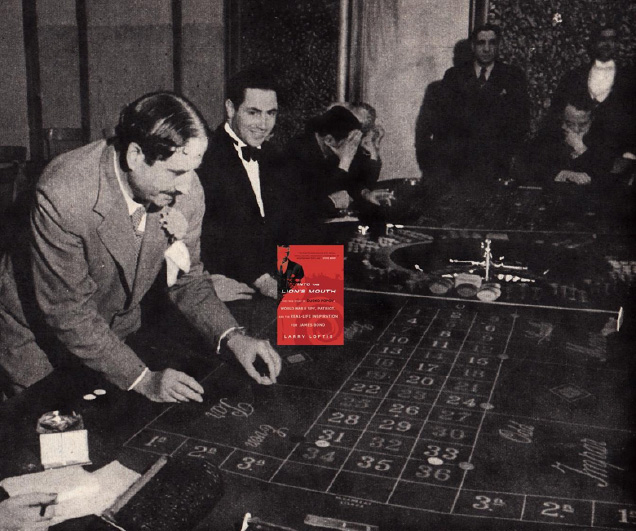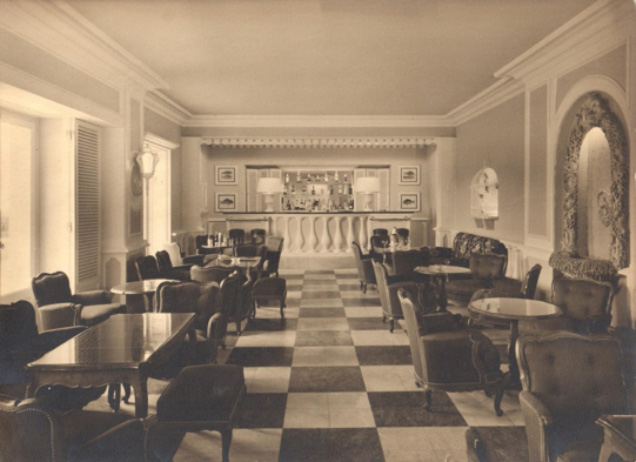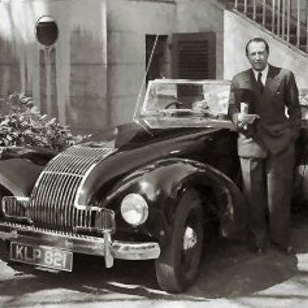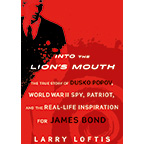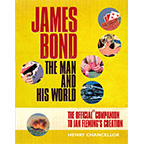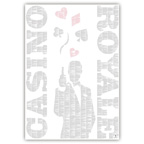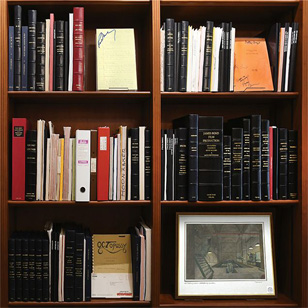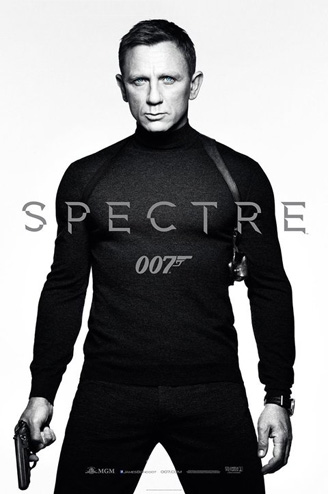Casino Estoril, His Majesty's Money, and the Birth of Bond
Seventy-five years ago this week - between August 4 and 9, 1941, to be exact - James Bond was born.
In all likelihood, however, Ian Fleming had been intrigued by the notion of a charming MI6 playboy months earlier. Lt. Commander Ian Lancaster Fleming, personal assistant to British Director of Naval Intelligence, Rear Admiral John Godfrey, had heard all about Britain's—and Germany's—best spy, double agent Dusko Popov, code named TRICYCLE.
Casino Estoril (Portugal), 1941
Admiral Godfrey was one of only two men who sat on both boards—the W Board and the Double-Cross Committee—which supervised Britain's double agents; the other was Major- General Stewart Menzies, "C" ("M" in the Bond novels), director of the Secret Intelligence Service (MI6). The W Board provided overall espionage planning and strategy, while the XX Committee (as it was also known) was tasked with operations and day-to-day activities. Commencing with Popov's vetting in December 1940, Godfrey would have regularly updated Fleming—probably weekly—on the charismatic and frightfully independent Yugoslav playboy. Fleming likely also received anecdotes from another XX Committee member, Naval Intelligence colleague Lt. Commander Ewen Montagu, who provided Popov with "chickenfeed" (misleading military information) to pass to the Germans.
Rear Admiral John Godfrey - Lt. Commander Ian Fleming - Lt. Commander Ewen Montagu
On June 29, 1941, Popov checked into his regular room at the swanky Palacio Hotel in Estoril, Portugal's version of the Côte d'Azur. His primary task for July—in addition to spoon-feeding lies to German spymaster, Major Ludovico von Karsthoff—was to consummate Plan Midas. Midas was Popov's ingenious and outlandish ruse to steal the Germans blind in a labyrinthine money laundering exchange. It worked. Berlin flew in the Abwehr's chief financial officer, Lieutenant Colonel Martin Töppen, to negotiate, approve, and coordinate the transaction. On July 31 Popov cabled the secret message confirmation— TILLY HAD YESTERDAY A DAUGHTER WEIGHING 3 KILOS PLEASE INFORM HARRY WHEN YOU MEET HIM = MARIA GONCALVES—to the intermediary in London.
Days later in Lisbon, von Karsthoff handed Popov $38,000—roughly $500,000 today. Midas money. His Majesty's Secret Service money. Fearful of stashing a king's ransom in the Palacio safe until he could deliver it to MI6, Dusko kept the money on him.
Unknown to Popov, Fleming had just returned with Godfrey from a trip to Washington, D.C. and had decided to spend a few weeks in Estoril—partly to spend time with his friend David Eccles, partly to enjoy gambling at the casino and cocktails at the Palacio.
Palacio's intimate lounge, colloquially known today as the "Spy Bar."
And here's where it gets confusing. Shortly before his death on August 12, 1964, Fleming told a BBC reporter that he had created the Casino Royale story, Ian's first Bond novel, from gambling with several Germans at Casino Estoril on his outbound trip to the U.S. As Fleming biographer John Pearson noted in The Life of Ian Fleming, however, Ian's explanation was a complete fabrication. What Pearson didn't know in 1966 when the biography was released, though, was why Fleming lied, and what really happened. The "why" is simple: Fleming crafted his alternative story due to Britain's ironclad Official Secrets Act. If Ian—or Dusko Popov—said a word about what actually happened on Fleming's second trip to Estoril, he and Popov would have been charged with violation of the Act, fined, and possibly imprisoned.
What really happened? Between August 4 and 9 (Popov departed for New York on the 10th), Fleming shadowed Popov from the Palacio to Casino Estoril and watched. Popov saddled up to a baccarat table and made an outrageous bet—with the MI6 Midas money—to humiliate a wealthy but boorish opponent "holding the bank" (dealer position). The man—whose name was Bloch— had fled to Estoril to escape the Nazis. If the scene sounds familiar, it should; the scenario would be repeated in every detail in Casino Royale.
Estoril becomes Royale-les-Eaux. The Cascais cliffs become the Brittany cliffs. Casino Estoril becomes Casino Royale. The Palacio and Parque hotels become the Splendide and Hermitage. The game is again baccarat. Bloch becomes LeChiffre, who had fled the Russians and is holding the bank. Fleming—the intelligence agent watching—becomes Mathis, and Popov—the suave playboy with ice-water veins—becomes James Bond. Bond's money—can you guess?—belongs to MI6. Even the amount of money, adjusting for inflation and currencies, is roughly the same.
And Vesper? Yes, Popov had a beautiful sub-agent, Friedl Gaertner, code named GELATINE. Did Dusko seduce her, you ask?
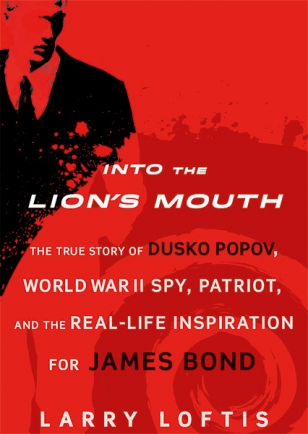 To find out, you'll have to plunge Into the Lion's Mouth.
To find out, you'll have to plunge Into the Lion's Mouth.
Author Larry Loftis details the entire story in his new book, INTO THE LION'S MOUTH: The True Story of Dusko Popov—World War II Spy, Patriot, and the Real-Life Inspiration for James Bond (Berkley, June 14, 2016).
Available on Amazon.com ($16.20)
Available on Amazon.co.uk (£20)
Article by Larry Loftis




